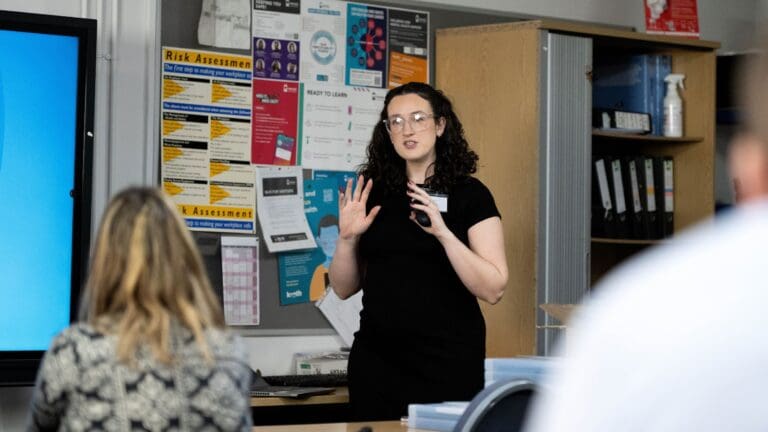
The sessions were aimed at equipping lecturers with the skills to deliver the latest industry knowledge to the engineers of the future, with a focus on installing and optimising heating systems for low temperatures.
As the clean heat transition continues, lower temperature systems, particularly those using heat pumps, are set to become more widespread. However, whether installing a heat pump or a boiler, making the system as efficient as possible should be the aim.
Delivered by two of Baxi’s training experts, Head of Training Solutions Ian Trott and Training Officer Rachel Griffiths, the training sessions centered around driving maximum efficiency in heating systems. This is particularly important as measures such as Part L of the Building Regulations stipulate that systems should be designed for low flow temperatures to improve efficiency and lower emissions.
The content also included explanations of technologies like weather compensation, smart controls and dynamic range rating to meet the tighter standards.
The sessions were designed to provide lecturers with the insight they need to ensure the next generation of installers receive the training and skills they need to deliver low carbon heat into the future.
Rachel said: “Training sessions like these are very important to the wider development of the skilled workforce we need to deliver low carbon heating solutions, and will be key to reducing emissions and energy consumption across the UK. We are committed not only to equipping current installers and engineers to deliver clean heat, but also to training those who are going to educate the next generation. It is vital that those entering the industry are focused on the latest knowledge from the outset.”
For more information about training courses including low temperature heating, visit the Baxi website.
Image supplied by BAXI